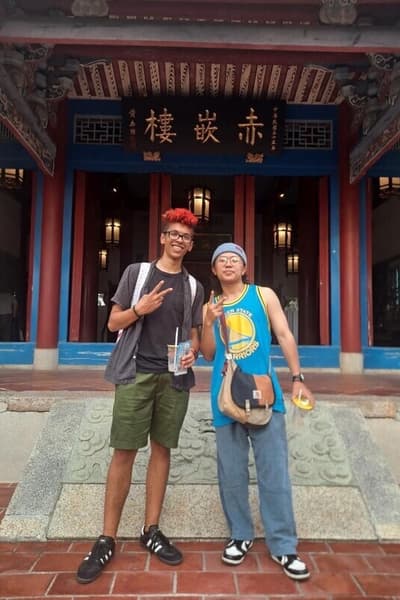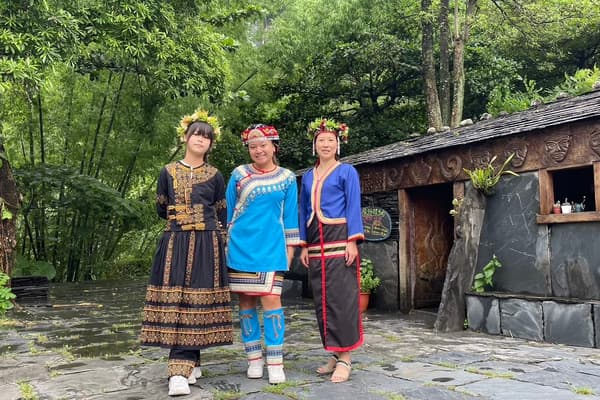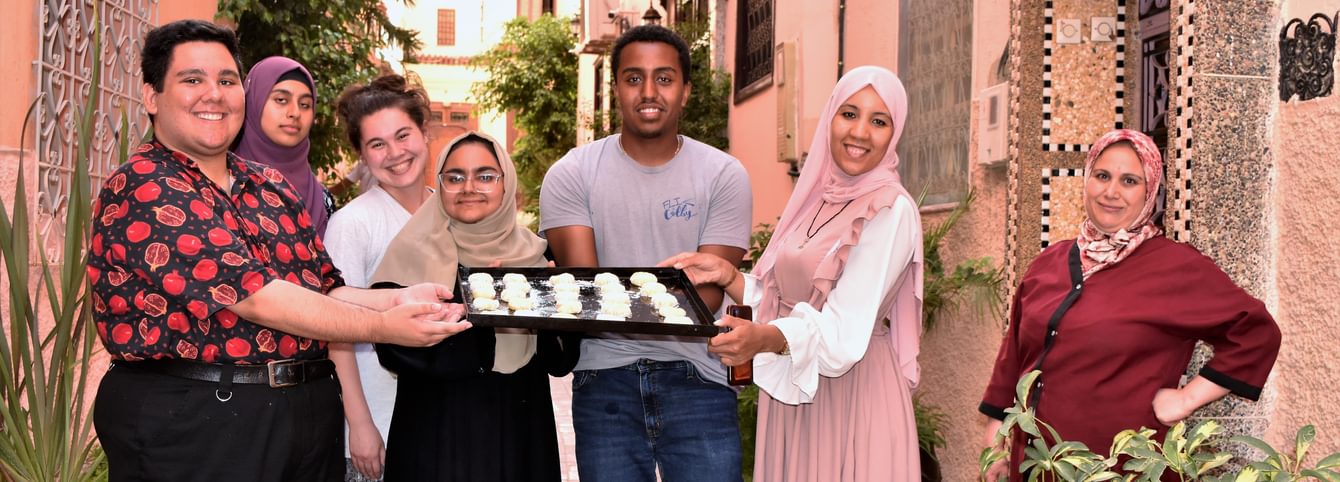Cultural Engagement
In addition to the academic curriculum, the CLS Program provides opportunities for participants to practice the CLS language and learn about their host country or location through cultural engagement. Participants gain cultural knowledge and understanding through CLS-arranged cultural activities and excursions, as well as by exploring the host community on their own or with their Language Partner(s), host families, roommate(s), or CLS peers.
CLS-Arranged Cultural Activities
Throughout the summer, CLS students attend a variety of mandatory cultural activities and excursions. CLS-arranged cultural activities are intended to provide participants with first-hand experiences of cultural and historical aspects of the host community, a better understanding of social issues in the region, and opportunities to use their language skills. Some examples of past cultural activities include presentations by guest speakers, group discussions of a cultural topic in the target language, visits to local organizations or businesses, and interactive activities such as cooking or craft demonstrations. Some cohorts may also take day trips or overnight excursions. While participants receive some information about cultural activities during their on-site orientation, it is important to note that program staff might not provide a “schedule” of activities to students. Plans for activities may be communicated to the cohort on a rolling basis throughout the summer and may need to change depending on circumstances.
CLS-arranged cultural activities are typically conducted in the CLS language, even for cohorts that include absolute beginners in the CLS language. Participants are expected to actively engage and to ask questions in the CLS language, and CLS staff assist students in preparing to do so. While the content of some cultural activities may not be personally or professionally interesting to every student, participants should keep an open mind and approach each activity as a learning opportunity.
If a participant has special needs while travelling or during excursions (such as medication that needs to be kept cold, or other special arrangements), they should describe their needs in the Disability Accommodations Form in the spring. This information will be shared with the Resident Director and host institution staff, but students should also remind the Resident Director and institute staff of their needs well in advance of any excursions. Some excursions may be physically demanding and require long walks or being outside for a duration of time. The Resident Director works with participants to identify ways that they may prepare in advance, such as packing water bottles or wearing appropriate clothing.

A CLS Chinese student spends time with his Language Partner.
Language Partner(s)
Language Partners are local students or members of the host community who are selected to practice the CLS language with participants in a less formal setting on a weekly basis. Language Partners enhance participants’ conversational skills and provide participants valuable insight into the host community, its people, and local culture and traditions. Language Partners are required to speak with students in the CLS language, even if they have some knowledge of English.
For many students, especially for those with beginner language skills, meetings with their Language Partner can feel awkward at first due to limited communication. However, Language Partners are trained to work with beginning learners and understand that students are participating in the program to improve their language skills. Working through the discomfort of communicating with a Language Partner will help participants to develop their skills and confidence in the CLS language, and the ease of conversation typically improves with time.
At some program sites, participants have the same Language Partner for the duration of the program, while at others, a participant may meet with more than one Language Partner, or their Partner may change throughout the summer. Participants will receive information about the frequency at which they are required to meet with their Language Partner(s) during the pre-program and on-site orientation. Participants have the freedom to shape how they spend time with their Language Partner(s), but activities suggested to a Language Partner(s) should not involve a significant monetary expense. CLS participants may invite their Language Partner(s) to visit a park or museum, play a sport, or participate in a club together. Participants should also keep an open mind towards activities their Partner suggests.
While staff at some program sites may try to match CLS students with Language Partner(s) on the basis of mutual interests, participants are encouraged to get to know their Partner(s) even if they do not appear to have a lot in common with one another. When interacting with their Language Partner(s), as well as other members of the community, participants should be respectful and remember that they are serving as citizen diplomats. As such, participants are encouraged to view the Language Partner relationship as a valuable opportunity to bridge cultural gaps, foster mutual understanding, and build connections on a personal level. If a participant has any concerns about their Language Partner relationship, they should speak to the Resident Director or host institute staff.

A CLS participant on an outing with her host family in Taiwan.
Host Family and Roommate(s)
The goal of a homestay or local roommate housing arrangement is to provide insight into customs, beliefs, and interpersonal relationships in the local culture. These housing arrangements also provide important opportunities to further develop language skills. Like other parts of the study abroad experience, housing arrangements can be challenging for participants and may push them out of their comfort zone at times. Navigating the relationship with one’s host family or roommate(s) requires adaptation, as well as good humor, patience, and an open mind on the part of participants.
Host institute staff choose host families and roommates through a careful process that includes an application and a home inspection. A primary criterion in host family and roommate selection is a genuine interest in cultural exchange and a willingness to work through the challenges of using the CLS language with a non-native speaker. The ability to speak English is not a requirement of hosting a CLS student, as host families are expected to speak the CLS language with students, including with beginners. Host institute staff match students with families or roommates first and foremost based on the medical, dietary, and accommodation needs of students, and families’ and roommates’ abilities to meet those needs.
Participants may develop a very close relationship with their host family or roommate(s), or they may find that they respect each other but do not feel very close. Just as living with anyone, living with a host family or roommate(s) will have its ups and downs. Students are encouraged to get to know their host family or roommate(s) through respectful exchange and conversation. A participant can ask their host family members or roommate(s) questions about the host community and invite them to partake in activities with the participant, if they feel comfortable doing so. Host family members or roommates may also invite participants to spend time with them, but this is not required.

Students chat with a local family while taking a break in the Georgian countryside.
Independent Exploration
In addition to participating in CLS-arranged cultural activities and spending time with their Language Partner(s), host families, and/or roommate(s), CLS students are encouraged to engage with the local culture either on their own or together with their CLS peers. In the past, some participants have found opportunities to visit museums or other places of interest, attend concerts or festivals, join a club, or volunteer in the host community. However, even seemingly mundane activities like shopping at a grocery store, going to the gym, or taking public transportation can offer chances to learn about the host community.
If a student has a particular area of interest in the local culture that they would like to explore, they are encouraged to do some research about ways they might pursue that interest in the host community and then speak with the Resident Director and/or host institute staff about their ideas. When exploring the host community, participants are urged to stick to activities that are culturally appropriate and to follow the safety advice provided by local staff and in the Health and Safety section of this resource.


